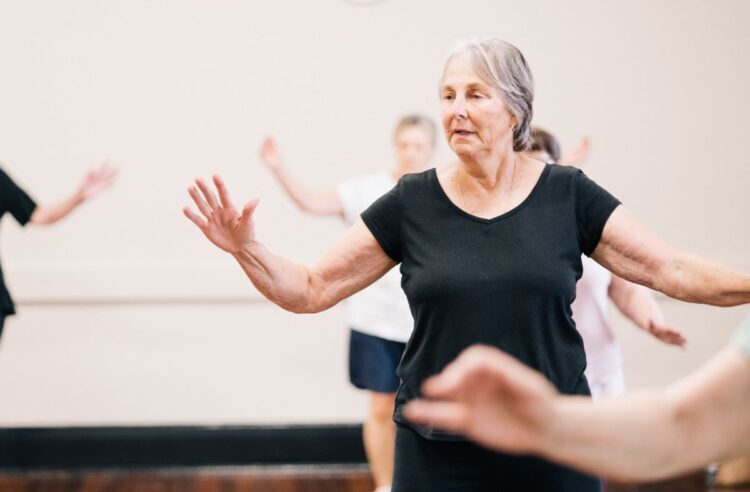
Are you ever really prepared to be classified as a senior citizen? One day you’re young, carefree, and living life to the fullest, and the next thing you know, your hair is gray and your knees or back aches with every step.
But at what point do middle-agers officially stop denying they are aging and gracefully transition into being a senior citizen? Is it when we become eligible for social security benefits? Is it when you retire? Or, perhaps it’s when you start qualifying for senior discounts? Or is there more to it than just reaching a certain age?
One thing for certain is that most of us remain in denial about growing older. And that’s okay, too. You can agree to disagree that you are no longer the young and spry person you once were, or that you aren’t ready to all yourself a “senior citizen.” After all, there is no official declaration on when you go from middle-aged to senior age, and then ultimately, become ultimately.
However, here are some aging milestones that are commonly used to determine the label of senior citizen. Just remember, that’s only a number, and you can stay young forever…at least in your own mind! After all, don’t worry about society’s perceptions of growing older. You can write the script!
6 Milestones That Could Determine Senior Citizen Age:
- Social Security.
Social Security benefits can begin as early as age 62 for eligible individuals for a reduced payment, at full retirement age (usually age 66 or 67), or waiting past full retirement age until age 70. You can easily get an estimate of how much money you will receive at the various ages through your Social Security account. - Medicare.
Generally, unless you have a disability or a few other designated health issues, individuals qualify for Medicare at age 65. Medicare has four parts: Hospital Insurance, Medicare Insurance, Medicare Advantage Plans, and Drug Coverage. Typically, the hospital insurance is premium-free, but the other sections require paid premiums. - Eligible for senior discounts.
These discounts can begin at various ages, depending on the organization offering them. For example, AARP is the largest non-profit, non-partisan group that focuses on serving individuals aged 50 or older, although there is no minimum age to join. The organization has almost 38 million members. There are senior discounts offered about everywhere, the senior citizen age differs at each one.There are some great deals for seniors, often age 55 and older, including at restaurants, grocery stores, movie theatres, rental car agencies, insurance, and for plans such as cell phones and internet. The biggest hurdle to get through is to acknowledge you qualify and to ask for a senior citizen discount.
- Retiring from work.
Choosing to retire often comes with it a plan for when you no longer have to work a 9-to-5 (or longer) grind. Some individuals may return to work on a part-time basis, or others choose to quit the world of work entirely. Being retired, however, is a common milestone for reaching senior citizen status. - Health changes.
Dreaded medical diagnoses common with senior citizen age like hypertension, arthritis, hearing loss, diabetes, heartburn, and even obesity are among the reasons individuals feel they may have transitioned to life as a senior citizen. Maybe you find yourself downing a few prescriptions a day, or seem like you are booking more doctor’s appointments than ever before.While these conditions don’t necessarily mean you are “old,” these frequent age-related ailments should serve as a wakeup call that it’s time to make some lifestyle changes to keep yourself healthy so you can age gracefully.
- Changing priorities.
As individuals age, it’s common to hear the thrill of climbing the career ladder or being the best at everything is no longer important (or less important than ever).Instead, priorities may shift to family and friends, and doing things you’ve always wanted to do. Maybe it’s a hobby of finally having enough time to golf or take the trips you’ve always wanted.
Senior Citizen Designation and Its Significance
A recent OnePoll of 2,000 Americans with representative samples of various generations cited that average individuals begin to notice the first signs of aging at 42. In addition, it took turning 40 before becoming aware that lifestyle changes needed to be because the same fitness and diet couldn’t be maintained like when they were younger.
 A third of respondents admit that they used to be in denial about aging, but have since accepted it, although about two-thirds took about three to six years before making lifestyle changes.
A third of respondents admit that they used to be in denial about aging, but have since accepted it, although about two-thirds took about three to six years before making lifestyle changes.
Defining senior citizen age has always been a topic of debate. While most countries set the benchmark at 65 years old, it fails to take into account the wide variation in individuals’ physical and mental capabilities. Age alone cannot be the sole determinant of senior citizenship as some people remain active and vibrant well into their seventies and beyond, while others begin to experience decline in their fifties.
That’s why it is essential to consider other factors such as overall health, cognitive function, and socio-economic circumstances when defining what is a senior citizen.
The significance of defining senior citizen age lies not only in policymaking but also in shaping societal perceptions and attitudes toward aging. By establishing an arbitrary age threshold for seniors, we risk reinforcing stereotypes that older adults are frail, dependent, or incapable of contributing to society.
However, by adopting a more nuanced approach that appreciates the diversity within this demographic group, we can challenge these assumptions and encourage active participation from seniors in all aspects of life – be it employment opportunities or community involvement.
Defining senior citizen age should go beyond simply looking at chronological years. Rather than pigeonholing individuals based on their birthdate alone, it is crucial to consider a range of factors that reflect the various dimensions of aging.
By doing so, we can create more inclusive societies that value the contributions and potential of seniors throughout their entire lifespan rather than confining them within narrow boundaries dictated by chronological time.
Biological Factors Impacting Senior Citizen Age
Biological factors play a significant role in determining the age at which an individual reaches senior citizen age. One key factor is genetics. Scientific research has shown that certain genes are associated with longevity, meaning people who inherit these genes from their parents have a higher chance of living longer.
Additionally, genetic variations can influence our susceptibility to diseases and health conditions that occur more frequently in old age, such as Alzheimer’s or heart disease.
The concept of biological aging goes beyond just genetics. Researchers have identified various cellular and molecular processes that occur in our bodies as we grow older, which collectively contribute to the aging process.
For instance, telomeres – protective caps at the ends of our chromosomes – naturally shorten over time due to cell division and other factors. When telomeres become too short, cells can no longer replicate effectively or repair damaged DNA. This cellular deterioration is thought to be a fundamental aspect of aging.
Lifestyle choices can also interact with biological factors in determining senior citizen status. While genetics may predispose individuals to certain health conditions, taking care of one’s physical health through proper nutrition, regular exercise, and avoiding harmful behaviors like smoking or excessive alcohol consumption can significantly impact overall lifespan and quality of life.
In addition to healthier eating and exercise, stress management is another crucial aspect that directly impacts our aging process. Chronic stress has been linked to accelerated cellular aging and an increased risk of various age-related diseases like cognitive decline and cardiovascular issues. Practices such as meditation or yoga can help reduce stress levels and promote relaxation, ultimately contributing to healthier aging.
It is important to note that while biological factors are undeniable contributors to senior citizen age determination, they do not tell the whole story. Environmental factors such as socio-economic status and access to healthcare also play instrumental roles in shaping individuals’ health outcomes as they age.
Social Factors in Establishing Senior Citizen Age
Social factors play a significant role in determining the age at which individuals become senior citizens. One such factor is societal expectations and cultural norms. In some cultures, reaching a certain age automatically confers seniority and comes with specific privileges and responsibilities.
For example, in many Eastern cultures, turning 60 is considered a milestone that grants individuals status as respected elders. On the other hand, in Western societies, the concept of senior citizenship is often tied to retirement age or government policies.
Another social factor that influences when someone becomes a senior citizen is economic considerations. Financial stability and healthcare access are vital aspects that determine one’s eligibility for retirement benefits and senior-specific services like Medicare or reduced fares on public transportation.
Individuals in wealthier countries may have earlier privileges associated with being a senior citizen compared to those from less economically developed nations.
Overall, it is important to recognize that while chronological age provides a starting point for defining senior citizenship, social factors such as cultural norms and economic disparities also significantly impact when an individual attains this status. Age alone does not define what it means to be a senior citizen; instead, it is shaped by various factors unique to each society and its values.
Cultural Perspectives on Senior Citizen Status
Cultural perspectives on senior citizen age vary greatly around the world, highlighting the influence of societal norms and values. In some cultures, reaching a certain age is seen as a milestone of wisdom and experience, while in others it may be viewed as a time of decline and dependence.
 For example, in many Asian cultures such as China or Japan, older adults are highly respected for their knowledge and are often consulted for guidance. They are considered valuable members of society who have accumulated wisdom over the years.
For example, in many Asian cultures such as China or Japan, older adults are highly respected for their knowledge and are often consulted for guidance. They are considered valuable members of society who have accumulated wisdom over the years.
In more individualistic societies like the United States or Western Europe, however, there is often an emphasis on independence and productivity. Older adults may face pressure to remain active and engaged in society to maintain their status and avoid being labeled as senior citizens.
Retirement may be seen as an opportunity to pursue personal interests rather than a decline into old age. These cultural perspectives can significantly impact how aging individuals perceive themselves and how they are treated by others.
In addition to cultural perspectives within specific countries or regions, it’s important to remember that even within one culture there can be diverse viewpoints on senior citizen age based on factors such as class or ethnicity.
For instance, certain ethnic communities within larger societies might have unique traditions and customs when it comes to defining senior citizen age. Therefore, understanding these various cultural nuances is crucial in order to truly appreciate the richness of global perspectives on aging.
Retirement Policies and Societal Expectations
Retirement policies and societal expectations often go hand in hand when it comes to determining the age at which one becomes a senior citizen. Historically, retirement age was set at 65 due to the introduction of social security programs, which were designed to provide financial support for individuals in their later years.
However, as life expectancy continues to rise and people are staying healthy and active well into their 70s and beyond, there is growing debate about whether this traditional retirement age is still relevant.
Societal expectations play a significant role in shaping retirement policies. For many years, it was assumed that individuals would retire from work at a certain age and spend their so-called golden years pursuing leisure activities or simply taking it easy.
However, this perspective is slowly shifting as more seniors are choosing to stay in the workforce longer or explore new career opportunities during what could traditionally be considered their retirement years.
With advancements in healthcare and technology enabling older adults to maintain productive lifestyles, society should reconsider its assumptions about when someone becomes a senior citizen and how they choose to define their retirement goals. Having activities also helps to eliminate boredom and depression.
Of course, another reason for remaining in the workforce is that inflation and high costs of health insurance, good, and housing is forcing individuals to work as long as they can.
Overall, it’s crucial for retirement policies and societal expectations regarding senior citizens’ age to evolve alongside changing demographics and individual preferences. As life expectancy increases and seniors continue leading active lives well into their later years, rigid notions around retirement must be challenged.
By reevaluating these policies with fresh insights that reflect the realities of today’s aging population, we can ensure that individuals have the freedom to make choices based on their own needs rather than conform
Psychological Factors At Play
Psychological factors play a significant role in determining a senior citizen designation. A positive mindset and mental resilience can greatly impact how individuals age. Studies have shown that those who maintain an optimistic outlook on life tend to live longer and have better overall health.
It’s not just optimism, but also cognitive abilities that play a crucial role in determining senior citizen age. Engaging in mentally stimulating activities like solving puzzles or learning new skills can help keep the brain sharp and delay cognitive decline.
Psychological factors such as personality traits and stress management skills also influence aging. Those with higher levels of conscientiousness, for example, tend to be more cautious about their health and engage in behaviors like regular exercise and proper diet.
The psychology behind aging is complex, but there is no denying the impact of psychological factors on senior citizen age. Cultivating a positive mindset, engaging in cognitive exercises, and adopting healthy lifestyle choices are all essential for successful aging. By understanding these psychological influences, individuals can make conscious efforts to improve their mental well-being as they enter their later years.
Mental Health and Cognitive Abilities in Aging
As we age, mental health and cognitive abilities become increasingly important to maintain. While many assume that a decline in cognitive skills is inevitable with aging, research shows that this is not always the case.
In fact, there are various factors that can influence the maintenance of mental health and cognitive abilities in seniors.
One important factor is engagement in challenging activities. Studies have shown that seniors who actively participate in mentally stimulating activities, such as puzzle-solving or learning new skills, tend to have better cognitive function compared to those who do not engage in such activities. This suggests that keeping the brain active and challenged can help preserve cognitive abilities as we age.
Additionally, social connection plays a significant role in mental health and cognitive well-being for older adults. Research has found that individuals who maintain strong social ties during their later years often experience better mental health outcomes and enhanced cognition.
Social interaction provides intellectual stimulation, emotional support, and opportunities for continued learning – all of which contribute to maintaining overall cognitive health.
Overall, while aging inevitably brings about changes in mental health and cognitive function, it is crucial to remember that these changes can be influenced by various factors within our control.
By engaging in intellectually stimulating activities and maintaining strong social connections, senior citizens can potentially enhance their mental well-being and preserve their cognitive abilities as they navigate through the different phases of life.
Attitude Toward Senior Citizen Age and Self-Perception
One of the most fascinating aspects of aging is the attitude that individuals have toward it, and how it shapes their self-perception. While some may view aging as a natural and inevitable part of life, others approach this stage with trepidation and concern.
 Interestingly, research suggests that it is our mindset toward aging that can significantly impact our overall health and well-being as we grow older.
Interestingly, research suggests that it is our mindset toward aging that can significantly impact our overall health and well-being as we grow older.
Numerous studies have shown that individuals with a positive attitude toward aging tend to lead healthier lives compared to those who hold negative perceptions. When we believe that getting older is synonymous with wisdom, experience, and increased free time for pursuing passions, we are more likely to engage in activities that foster personal growth and happiness.
On the other hand, viewing age as a limiting factor or an obstacle can result in decreased physical activity, isolation from social networks, and a decline in cognitive abilities.
Self-perception plays a crucial role in how we navigate various aspects of life beyond just our physical appearance. As seniors face changes in roles and responsibilities due to retirement or an empty nest situation, maintaining high levels of self-esteem becomes paramount.
Embracing one’s age gracefully often involves accepting new challenges and finding purpose outside societal norms. By developing new skills or exploring previously unexplored interests post-retirement, seniors can redefine themselves positively while also contributing meaningfully to society at large.
Understanding the Multifaceted Nature of Senior Citizen Age
As we try to understand the multifaceted nature of becoming a senior citizen, it becomes clear that a chronological number doesn’t define this stage of life. While some people may consider turning 60 or 65 as the standard age for senior citizen status, others argue that it is much more complex than that.
Factors such as overall health, happiness, physical abilities, mental wellbeing, and social engagement all play a significant role in determining when an individual transitions into the senior years.
One aspect often overlooked in discussions about senior citizenship is the concept of individuality. Each person ages differently and experiences aging in a unique way. It is common to find individuals who are biologically older but maintain vibrant physical and mental health, while others may be younger chronologically but face major health concerns. Therefore, it becomes essential to recognize that aging isn’t a one-size-fits-all experience; instead, it is a diverse journey influenced by numerous factors.
Furthermore, societal expectations and cultural norms surrounding senior citizens can also shape our understanding of aging. In some cultures, the status and responsibilities assigned to an individual at a certain age differ significantly from those of another culture.
Consequently, as we delve deeper into understanding the multifaceted nature of senior citizen age, we must acknowledge these varying perspectives and challenge any preconceived notions or stereotypes associated with getting older. By doing so, we can foster an inclusive society that values and supports individuals throughout their unique journeys of aging. So, remember, there is no reason to deny aging; embrace it and consider the next stage of life a gift!
Written by
Robin McClure
Robin is the author of 7 parenting books and has 3 grown children, 3 spoiled rescue dogs, and a very understanding husband. She holds a bachelor's degree in journalism and a master's degree in communications, and spends her time writing, drinking coffee, and planning the next grand adventure.



